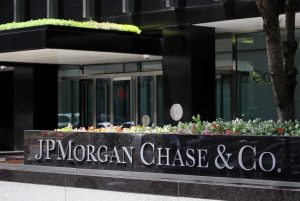Billionaire investor Ray Dalio, founder of Bridgewater Associates, has issued a stark warning about the growing risks posed by the United States’ surging national debt. Speaking to Bloomberg, Dalio cautioned that if policymakers fail to address the issue immediately, the country could face a severe financial crisis within the next three years.
A Debt Crisis in the Making
The U.S. federal budget deficit has ballooned to $1.8 trillion for the fiscal year ending in September 2024, making it the third-largest in history after the pandemic-driven deficits of 2020 and 2021. Meanwhile, national debt has surpassed $36.2 trillion, a figure that continues to rise amid government spending increases.
“If we don’t take action, we’re heading for trouble,” Dalio warned. “I can’t predict the exact moment it will hit, but it’s like a heart attack—you don’t know exactly when, but the signs are all there.”
Dalio estimates that without intervention, the debt crisis could materialize within three years, give or take. He emphasized that the U.S. has a path to avoiding catastrophe, but it requires decisive policy changes to rein in government spending and stabilize the economy.
Trump’s Economic Policies & Rising Deficits
Dalio’s concerns come as President Donald Trump’s administration pursues sweeping tax cuts and increased defense spending, raising questions about the long-term fiscal impact.
Last week, the U.S. House of Representatives passed a budget framework aimed at cutting $2 trillion in spending while approving up to $4.5 trillion in tax reductions over the next decade. The bill also raises the statutory debt limit by $4 trillion, further fueling concerns over fiscal sustainability.
The Consequences of a Growing Deficit
Dalio projects that once Trump’s tax cuts take full effect, the U.S. budget deficit will reach 7.5% of GDP, a level that could destabilize markets if not controlled. He suggested that policymakers should aim to reduce the deficit to 3% of GDP to prevent debt from growing unsustainably relative to national income.
“Bringing the deficit under control means stabilizing debt levels and balancing supply and demand in financial markets,” he explained. “If left unchecked, rising debt will eventually undermine confidence in the U.S. economy.”
Market Reactions & Economic Outlook
Financial institutions are already adjusting their economic growth forecasts in response to increasing fiscal concerns. JPMorgan still projects 2% GDP growth for 2025, but other firms, including Goldman Sachs (1.7%) and Morgan Stanley (1.5%), have lowered their expectations due to debt-driven economic uncertainties.
Meanwhile, financial markets remain on edge as investors assess whether Trump’s economic strategy will stimulate growth or lead to long-term instability.
What Comes Next?
Dalio insists that there is still time to prevent a financial crisis, but policymakers must act quickly. Without meaningful action, the U.S. could be headed for a major economic correction that disrupts markets, weakens the dollar, and reduces the government’s ability to respond to future crises.
As the national debt soars past historic levels, one question remains: Will Washington take the necessary steps to avert disaster, or will it allow the crisis to unfold?




Be First to Comment